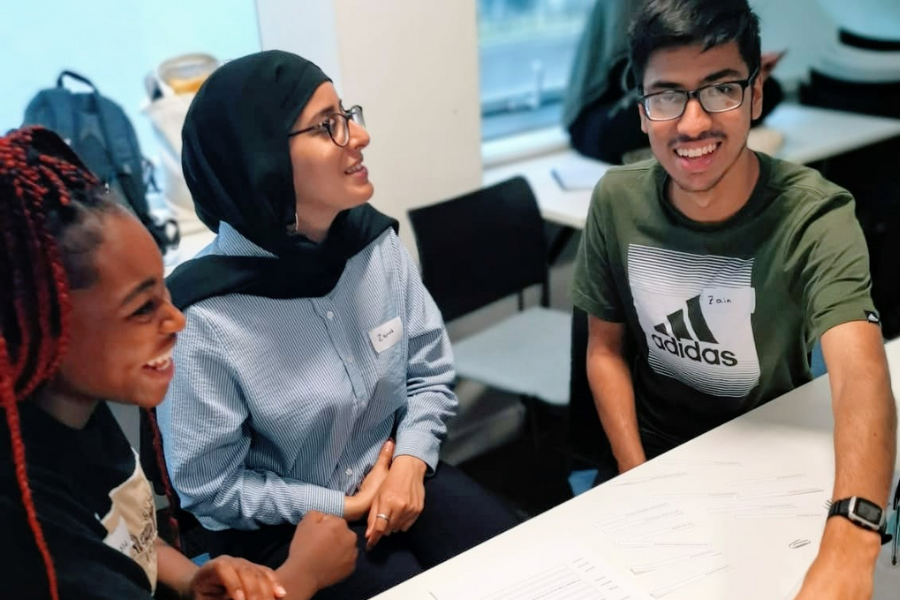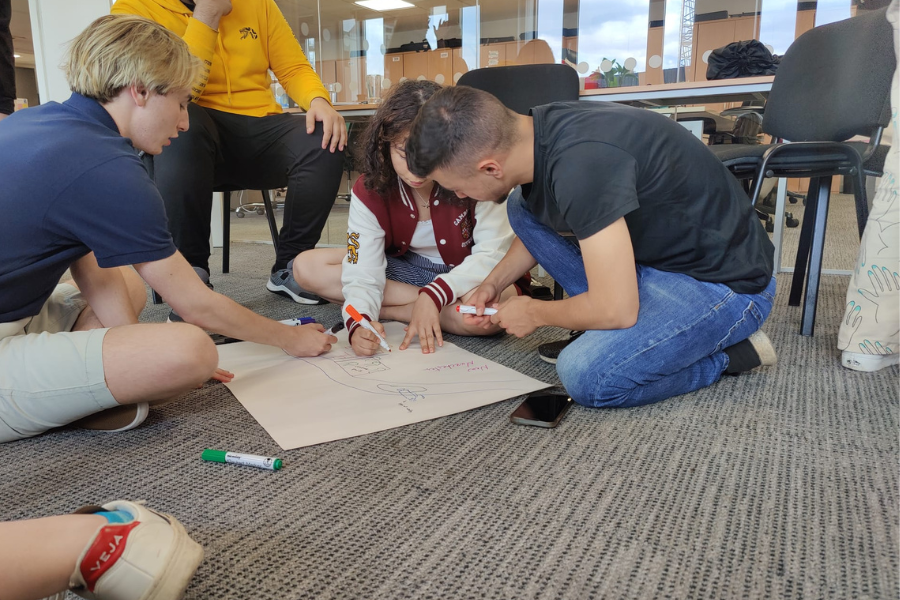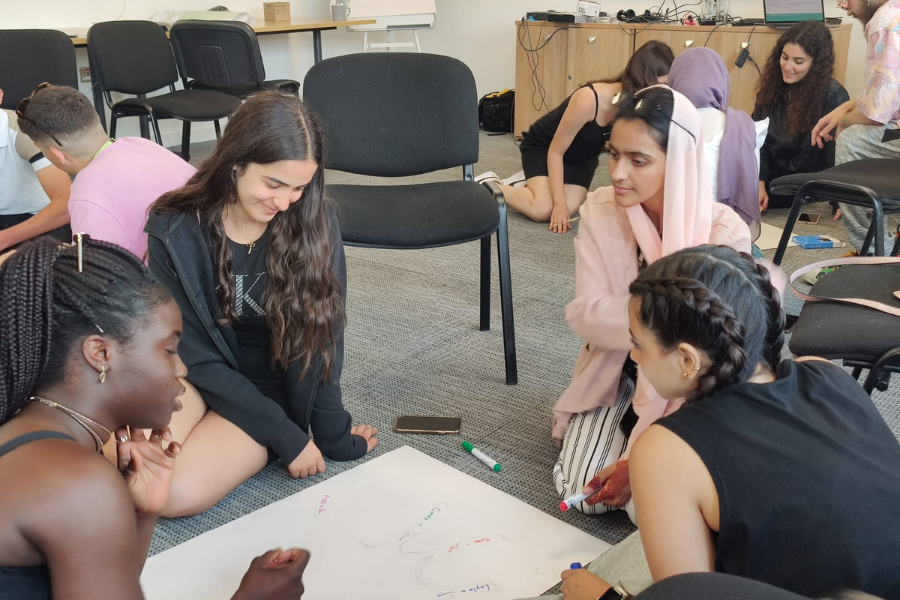The Olive Branch Award
Recognising UK schools' efforts to become safe & empowered spaces for learning about tough issues
Applications are open for secondary schools, sixth forms and FE colleges to join the Olive Branch Award for the upcoming academic year! Launched in 2022, the OBA community has now grown to a network of over 30 schools, which we invite you to join by signing up via the form below.
Join this growing community of like-minded teachers and schools by signing up via the form below.
What is the Olive Branch Award?
The Olive Branch Award supports schools to become safe and empowered spaces to talk and learn about tough issues through focusing on four key skills; active listening, empathy, critical thinking, and social and emotional learning. Schools can join and collect leaves for their Olive Branch by participating in SNS sessions and exclusive new programmes for teachers and students. It is a holistic approach for the school to embed a culture of learning, listening, and reflection on Israel - Palestine over a three year period, achieving full SNS accreditation at the end.
Click Here to download the full information pack to the Olive Branch Award and Click Here for the Olive Branch Award Journey.
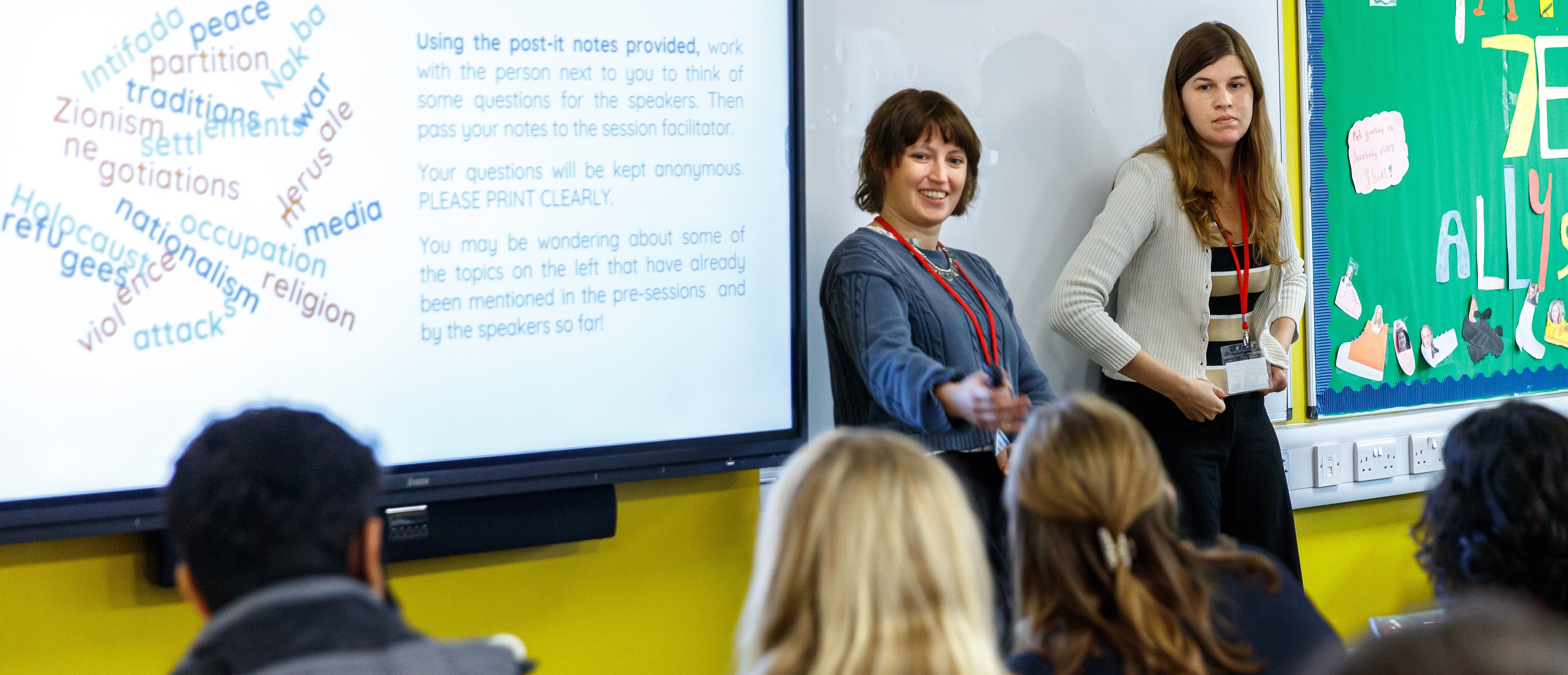
Getting Started
The Olive Branch Award Journey
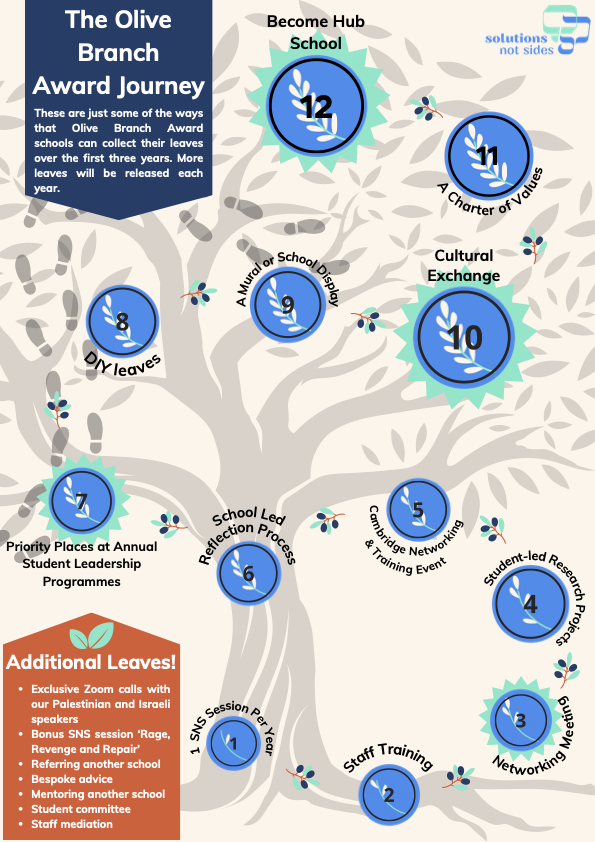
How does it work?
Once a school has applied to The Olive Branch Award, alongside this welcome pack, which has all the information you need to get started, you'll receive some printed materials to help you get a display underway. You can then sign up for certain programmes throughout the academic year, and send in evidence of completing programmes in order to receive the next leaf on your branch. SNS will send you new graphics and certificates for each branch. You’ll receive a framework to self-monitor progress, and the Programme Manager of SNS will support you with an evaluation process. There are over 15 different programmes to choose from and full accreditation is reached once you have done 10 of these programmes over three years and you can choose whichever ones you like. Schools need to get at least three leaves a year in order to retain their Olive Branch Award status over the three years of their journey. We ask the participating schools to complete at least one SNS workshop a year.
How many teachers should be involved?
Schools should nominate one teacher to be the lead teacher on The Olive Branch Award, but multiple teachers are welcome to run the programmes and attend events.
What are the programmes?
- 1 SNS session per year
- Staff training on Antisemitism & Islamophobia
- Networking meeting - once per term - virtual
- Student-led research projects
- Cambridge networking and training event for teachers
- School-led reflection process
- Priority places for students at Annual Student Leadership Programmes
- A charter of values
- DIY leaves
- Cultural exchange
- Become a Hub School
- A mural or school display
- Exclusive Zoom calls with our Palestinian and Israeli speakers for your students
- Bonus SNS session ‘Rage, Revenge and Repair’
- Referring another school
- Bespoke advice
- Mentoring another school
- Student committee
- Staff mediation
Frequently Asked Questions
Why do schools sign up for three years?
We ask participating schools to commit to the Award for three years because we have observed from focus groups and focus schools that real cultural and organisational shifts, which have an impact within an institutional setting, require at least three years of active work. The implementation of new policies, training, and skills amongst the teaching staff, and changes to PHSE curriculums take time to settle. In addition, SNS is offering multiple programmes that are best implemented step by step over consecutive years.
How much work is it?
We ask for schools to commit to at least 3 leaves in a school year. Beyond this, the initiative is designed to be as low or high commitment as schools see fit within their needs and within their timetables. Several of the programmes can take place within normal school lessons and are programmes that schools are already doing, and others are self-run student projects, or once a year events. You can also receive DIY leaves.
Life Skills for Students
The Olive Branch Award focuses on developing life skills related to Conflict Resolution and Emotional Learning, including Active Listening, Critical Thinking, and Empathy. These are designed for students, but teachers and parents alike can also benefit from better understanding and engaging in training of these skills. You can find out more about each of these in our information pack.
"After meeting and talking to people from Palestine and Israel, I've learned about the issues that they have faced, the challenges that they have gone through and the fact, even going through all that, they still want peace. It's really opened my eyes.” - a student from an OBA school
